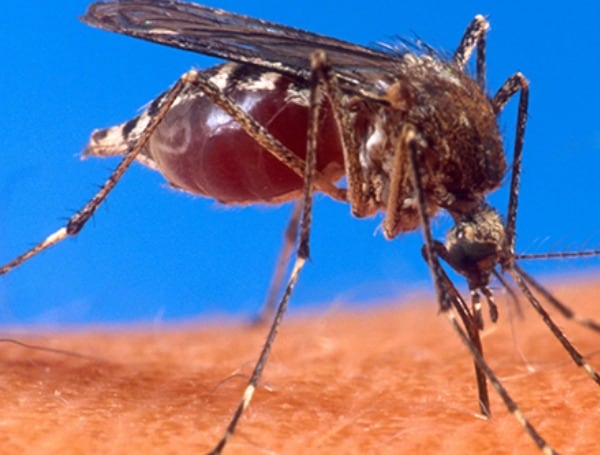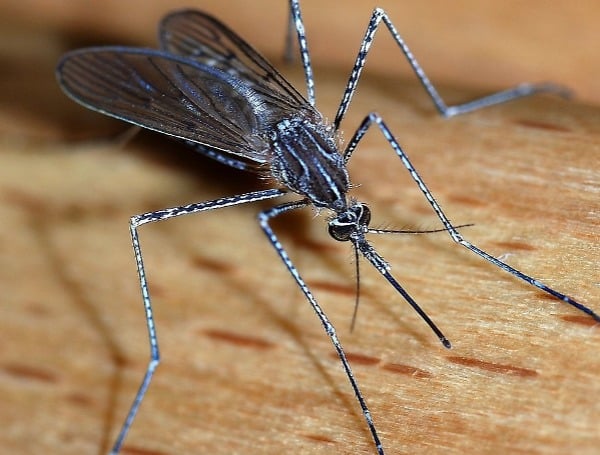Florida, known for its warm climate and abundant water bodies, is also home to a significant mosquito population. Mosquitos can be a nuisance and a health concern, as they are known to transmit various diseases. In this comprehensive guide, we will explore effective methods for beating mosquitos in Florida and controlling their population.
Mosquitos are small flying insects that belong to the family Culicidae. They are known for their itchy bites and buzzing sound. However, mosquitos pose a greater threat as carriers of various diseases, including malaria, dengue fever, Zika virus, and West Nile virus. Understanding the life cycle of mosquitos and the diseases they transmit is crucial in developing effective mosquito control strategies.
The Life Cycle of a Mosquito
Mosquitos undergo a complete metamorphosis, consisting of four stages: egg, larva, pupa, and adult. Female mosquitos lay their eggs in stagnant water, where they hatch into larvae within a few days.
The larvae feed on organic matter and develop into pupae. After a short period, adult mosquitos emerge from the pupae and start seeking blood meals for reproduction.
Mosquito-Borne Diseases and their Impact
Mosquito-borne diseases can have severe consequences for human health. In Florida, common mosquito-borne diseases include dengue fever, Zika virus, West Nile virus, and Eastern equine encephalitis.
According to the Florida Department of Health, these diseases can cause symptoms ranging from mild flu-like symptoms to severe neurological complications. Prevention and control measures are essential in minimizing the impact of mosquito-borne diseases.
Read: Florida Wildlife Preserves: Exploring Nature’s Treasures
Common Mosquito Species in Florida
Florida is home to several mosquito species, but three of the most common species are Aedes aegypti, Aedes albopictus, and Culex quinquefasciatus. Understanding the characteristics and behavior of these mosquitoes can help in developing targeted control strategies.
Aedes aegypti
Aedes aegypti, also known as the yellow fever mosquito, is a small, dark mosquito with white markings on its legs and body. It is primarily a daytime biter and is known for its ability to transmit diseases such as dengue fever, Zika virus, and chikungunya.
Aedes albopictus
Aedes albopictus, commonly known as the Asian tiger mosquito, is a black mosquito with white stripes on its legs and body. It is also a daytime biter and a potential carrier of dengue fever, Zika virus, and chikungunya. Aedes albopictus is known for its ability to adapt to various environments and breed in small containers.
Culex quinquefasciatus
Culex quinquefasciatus, also known as the southern house mosquito, is a brown mosquito with pale stripes on its abdomen. It is primarily a nighttime biter and is known for its ability to transmit diseases such as West Nile virus and St. Louis encephalitis. Culex quinquefasciatus breeds in stagnant water sources.
Read: FWC’s School Fishing Club Program Funds 50 Florida Schools To Support Outdoor Education
Mosquito Prevention Tips
Preventing mosquito breeding and reducing their presence is vital in controlling their population. Here are some effective mosquito prevention tips for individuals and communities:
Eliminating Standing Water
Mosquitos breed in stagnant water sources, so eliminating or treating these breeding sites is crucial. Regularly emptying containers, such as flower pots, buckets, and birdbaths, can prevent mosquitos from laying their eggs. Maintaining proper drainage systems and repairing leaks can also help eliminate standing water.
Proper Landscaping Techniques
Proper landscaping techniques can reduce mosquito breeding sites and create a less favorable environment for mosquitos. Regularly trimming shrubs and removing overgrown vegetation can minimize resting areas for mosquitos. Additionally, avoiding overwatering and removing debris from gutters can prevent water accumulation.
Using Mosquito Repellents
Using mosquito repellents is an effective way to protect oneself from mosquito bites. Repellents containing DEET, picaridin, oil of lemon eucalyptus, or IR3535 are recommended. Applying repellents to exposed skin and clothing can provide long-lasting protection. It is essential to follow the instructions on the product label for safe and effective use.
Read: Florida Offers A Blueprint For The Ultimate Saltwater Fishing Destination
Mosquito Control Measures
Mosquito control measures aim to reduce the mosquito population and minimize the risk of mosquito-borne diseases. These measures can be categorized into biological control methods, chemical control methods, and integrated pest management (IPM) approaches.
Biological Control Methods
Biological control methods involve the use of natural predators, such as fish and dragonflies, to control mosquito larvae. Introducing these predators into bodies of water can help reduce mosquito populations. Additionally, biological larvicides, such as Bacillus thuringiensis israelensis (BTI) and Bacillus sphaericus (BS), can be used to target mosquito larvae without harming other organisms.
Chemical Control Methods
Chemical control methods involve the use of insecticides to kill adult mosquitos or disrupt their reproductive cycle. Insecticides can be applied through fogging or spraying techniques. It is essential to use insecticides approved by the Environmental Protection Agency (EPA) and follow the recommended dosage and application methods to ensure effectiveness and minimize environmental impact.
Integrated Pest Management (IPM) Approach
Integrated pest management (IPM) combines various control methods to achieve long-term and sustainable mosquito control. This approach involves monitoring mosquito populations, identifying breeding sites, implementing preventive measures, and using appropriate control methods when necessary. IPM focuses on minimizing the use of chemical insecticides and promoting environmentally friendly strategies.
Mosquito Control Programs in Florida
Florida has a robust mosquito control program in place to protect public health and reduce mosquito-borne diseases. The state is divided into mosquito control districts that are responsible for implementing control measures and educating the public about mosquito prevention. The Florida Department of Health also plays a vital role in coordinating mosquito control efforts and providing resources and guidelines for effective control.
Read: Florida Camping: Potts Preserve, A Habitat To Wildlife And Adventure
Florida Mosquito Control Districts
Florida is divided into multiple mosquito control districts, each responsible for a specific geographical area. These districts conduct surveillance, implement control measures, and collaborate with local communities to reduce mosquito populations. Some of the prominent mosquito control districts in Florida include the Florida Keys Mosquito Control District, Miami-Dade County Mosquito Control, and Lee County Mosquito Control District.
The Florida Department of Health’s Role in Mosquito Control
The Florida Department of Health plays a crucial role in coordinating mosquito control activities statewide. It provides technical assistance and training to mosquito control programs, conducts disease surveillance, and disseminates information to the public. The department also collaborates with other agencies and organizations to develop comprehensive mosquito control strategies.
Mosquito Control Laws and Regulations
Mosquito control in Florida is governed by various laws and regulations to ensure effective and safe control measures. These laws aim to protect public health while minimizing the impact on the environment. Understanding the regulations related to mosquito control is essential for individuals, communities, and mosquito control programs.
Overview of Mosquito Control Laws in Florida
Florida has specific laws and regulations that govern mosquito control activities. These laws outline the responsibilities of mosquito control districts, permit requirements for the use of insecticides, and guidelines for mosquito control in residential and public areas. Familiarizing oneself with these laws can help ensure compliance and effective mosquito control.
Mosquito Control Measures for Residential Areas
Mosquito control measures for residential areas focus on eliminating breeding sites and reducing mosquito populations. These measures include source reduction, larviciding, and adulticiding. Source reduction involves removing or treating standing water sources, while larviciding targets mosquito larvae. Adulticiding involves the application of insecticides to kill adult mosquitos.
Mosquito Control for Outdoor Activities
Enjoying outdoor activities in Florida can be challenging due to mosquitos. Implementing mosquito control measures can help make outdoor experiences more enjoyable and reduce the risk of mosquito-borne diseases. Whether camping, hiking, or hosting outdoor events, there are steps individuals and organizers can take to minimize mosquitos’ impact.
Mosquito Control Tips for Camping and Hiking
Camping and hiking often involve spending time in mosquito-prone areas. To protect oneself from mosquitos during these activities, it is essential to wear protective clothing, such as long sleeves and pants, and use mosquito repellents. Setting up camp in areas with good airflow and avoiding camping near stagnant water sources can also help reduce mosquitos’ presence.
Mosquito Control for Outdoor Events and Gatherings
Organizing outdoor events and gatherings in Florida requires careful consideration of mosquito control measures. Providing mosquito repellents to participants, using mosquito netting in seating areas, and scheduling events during times when mosquito activity is minimal can help minimize the impact of mosquitos. Additionally, eliminating standing water sources and maintaining proper landscaping can reduce mosquito breeding sites.
Mosquito Control for Residential Areas
Mosquito control in residential areas is crucial for protecting households from mosquitos and reducing the risk of mosquito-borne diseases. Implementing preventive measures and using mosquito control products can help create a mosquito-free environment.
Tips for Protecting Your Home from Mosquitos
To protect your home from mosquitos, it is important to eliminate or treat potential breeding sites. Regularly emptying and cleaning containers that collect water, such as flower pots, bird baths, and gutters, can prevent mosquitos from breeding. Installing screens on windows and doors and repairing any gaps or tears can also help keep mosquitos out of your home.
Mosquito Control Products for Home Use
Several mosquito control products are available for home use, including insecticide sprays, mosquito traps, and mosquito repellent devices. When using these products, it is essential to follow the instructions on the label and ensure their safe and proper use. Additionally, considering natural alternatives, such as citronella candles or essential oils, can provide additional protection against mosquitos.
Mosquito Control for Agricultural Areas
Mosquito control in agricultural areas is critical to protect crops, livestock, and farmworkers from mosquitos and the diseases they transmit. Implementing mosquito control practices and using appropriate measures can help minimize the impact of mosquitos on agricultural operations.
Mosquito Control Practices for Farms and Plantations
Farmers and plantation owners can implement various mosquito control practices to protect their crops and workers. Maintaining proper drainage systems, eliminating standing water, and using larvicides targeted at mosquito larvae can help reduce mosquito populations. Additionally, providing protective clothing and using mosquito repellents can protect workers from mosquito bites.
Mosquito Control Measures for Livestock
Mosquitoes can also pose a threat to livestock, as they can transmit diseases such as Eastern equine encephalitis and West Nile virus. Implementing mosquito control measures in livestock areas, such as using repellents and providing shelter with screens, can help protect livestock from mosquitos. Additionally, maintaining proper hygiene and cleaning livestock areas regularly can minimize mosquito breeding sites.
Mosquito Control for Public Areas
Mosquito control in public areas, such as parks, schools, and recreational areas, is essential to ensure the well-being of the community. Implementing effective control measures and raising awareness about mosquito prevention can help create safer public spaces.
Mosquito Control in Parks and Recreational Areas
Parks and recreational areas attract people of all ages, making effective mosquito control crucial. Implementing preventive measures, such as eliminating standing water and conducting regular inspections for mosquito breeding sites, can help reduce mosquitos’ presence. Additionally, providing mosquito repellents and educating visitors about mosquito prevention can create a safer environment.
Mosquito Control in Schools and Educational Institutions
Schools and educational institutions play a vital role in protecting students and staff from mosquito-borne diseases. Implementing mosquito control measures, such as source reduction and larviciding, can help minimize mosquito populations. Educating students about mosquito prevention and providing mosquito repellents can also contribute to a safer learning environment.
Help support the Tampa Free Press by making any small donation by clicking here.
Android Users, Click To Download The Tampa Free Press App And Never Miss A Story. Follow Us On Facebook and Twitter. Sign up for our free newsletter.



